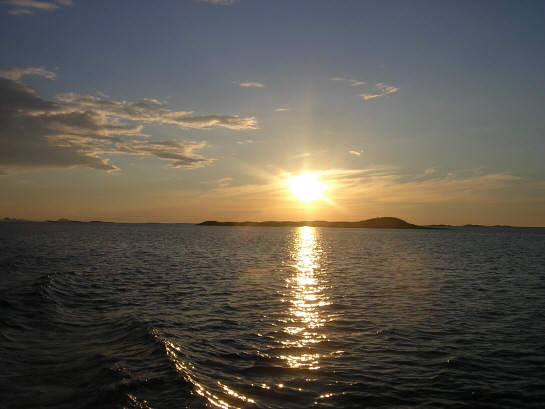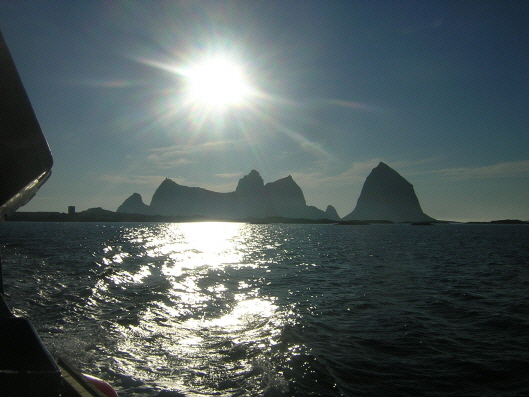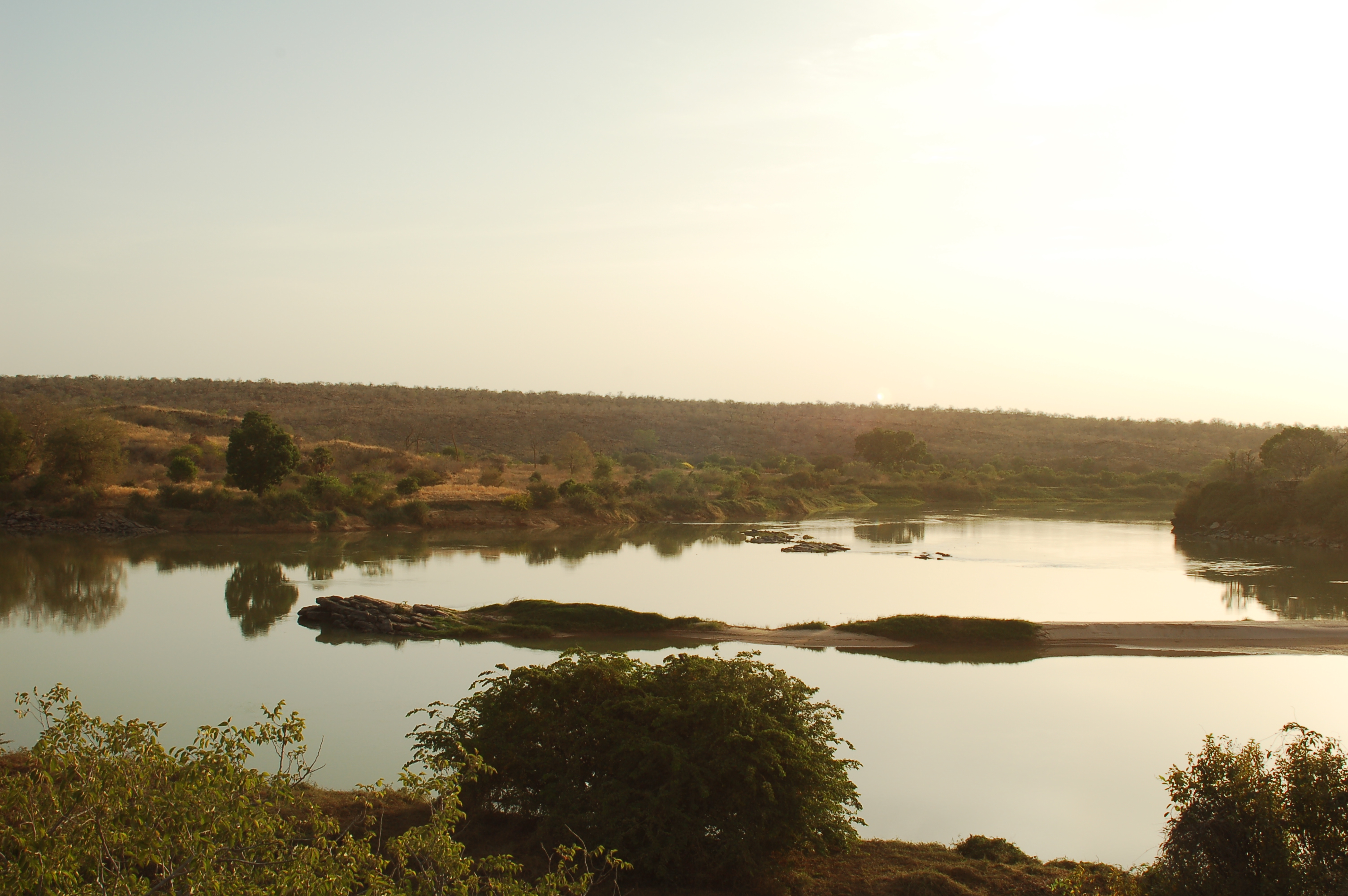
Facing potential loss of $458 million in federal Medicaid matching dollars, Speaker Salvatore DiMasi and other Massachusetts legislators knew something had to be done on state health policy. But DiMasi's initial idea for health policy reform was no more ambitious than that. Yet the legislation that Governor Romney eventually signed on April 12, 2006, was an ambitious, ground-breaking package of reforms aspiring to bring near-universal coverage to the state, including 500,000 previously uninsured residents.

Under a Republican Governor and declared 2008 presidential candidate, and a overwhelmingly democratic legislature with an active special interest lobby, a single-payor, government-sponsored approach to universal coverage would have been a political non-starter. Instead, the Massachusetts plan brings together a patchwork of reforms -- expanding existing state programs and insurance regulation, enhancing tax incentives and government subsidies, and adding new mandates and options for individuals and businesses. The program, set for January 2007 implementation, is mammoth in scope and aim.
Recent reports estimate the first-year budget overrun around $150 million. Despite noble ambitions, many questions remain about the potential for this massive beast to survive the long, hard slog to universal health coverage.
On Friday, November 10, 2006, the
Kansas Law Review held its annual symposium on "
The Massachusetts Plan and the Future of Universal Coverage." We were honored to have Speaker DiMasi's chief health counsel, Christie Hager, open the program with a description of the new law and the political climate that facilitated its passage. A day-long program of experts offering a range of perspectives, critiques, implementation challenges, and alternative proposals followed:
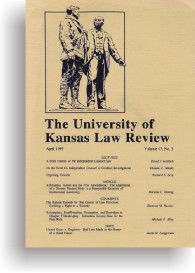
Christie Hager, J.D., M.P.H., Chief Health Counsel, Office of Speaker Salvatore F. DiMasi, Massachusetts House of Representatives and Adjunct Professor, Suffolk University Law School,
Health Reform in Massachusetts: A Social Compact and a Bold Experiment Sidney D. Watson, J.D., Professor, Saint Louis University School of Law,
The Road from Massachusetts to Missouri: What Would It Take for Other States to Replicate the Massachusetts Plan for Universal Coverage?Marcia J. Nielsen, Ph.D., M.P.H., Interim Executive Director, Kansas Health Policy Authority, State of Kansas,
Health Reform in Kansas: Context, Challenges, and CapacityTimothy S. Jost, J.D., Robert L. Willett Family Professor of Law, Washington and Lee University, School of Law,
Comprehensive Health Reform: The Role of Consumer Self-Insurance David A. Hyman, J.D., M.D., Professor and Galowich-Huizenga Faculty Scholar, University of Illinois at Urbana-Champaign College of Law,
Universal Coverage: Camelot or Brigadoon?Michael H. Fox, Sc.D., Associate Professor, Health Policy & Management and Research & Training Center on Independent Living, University of Kansas,
Health Reform: The Rhetoric and the RealityJoan Krause, J.D., George Butler Research Professor of Law and Co-Director, Health Law & Policy Institute, University of Houston Law Center,
Fraud in Universal Coverage: The Usual Suspects (and Then Some)Peter D. Jacobson, J.D, M.P.H., Professor of Health Law & Policy, Department of Health Management & Policy, School of Public Health, University of Michigan,
Let 1000 Flowers Wilt: The Futility of State-Level Health Care ReformAmy B. Monahan, J.D., Associate Professor, University of Missouri – Columbia School of Law,
The Latest Battleground in ERISA Preemption: Pay or Play Mandates and the Future of State-Based Universal CoverageWilliam M. Sage, J.D., M.D., Professor and James R. Dougherty Chair for Faculty Excellence, University of Texas at Austin School of Law,
Can the Fact that 90 Percent of Americans Live Within 15 Miles of a Wal-Mart Help Achieve Universal Health Coverage?Melissa B. Jacoby, J.D., Professor, University of North Carolina – Chapel Hill School of Law,
Debtor-Creditor Perspectives on Universal Health CoverageJerry Menikoff, J.D., M.P.P., M.D., Assistant Professor of Law, Ethics & Medicine, Department of History & Philosophy of Medicine, School of Medicine, University of Kansas,
Who Knows Where Universal Health Care Goes? The Hunt for the Omniscient CriticElizabeth A. Weeks, J.D., Associate Professor, University of Kansas School of Law,
Gap-Filling, Risk-Pooling, and the “Connector”: Private Market Solutions to Universal Coverage The consensus at the end of the day, while not apocalyptic, was notably pessimistic on the promise of the Massachusetts plan for acheiving universal coverage.
As summarized by KU Dean Gail Agrawal: "Everyone who has their roots in public health sees health care coverage as one of the pressing social issues of our time," she said. "I don’t know that the Massachusetts model is going to be the answer. I’m just happy that the question is on the table again."
The Second Coming
W.B. Yeats
Turning and turning in the widening gyre
The falcon cannot hear the falconer;
Things fall apart; the centre cannot hold;
Mere anarchy is loosed upon the world,
The blood-dimmed tide is loosed, and everywhere
The ceremony of innocence is drowned;
The best lack all conviction, while the worst
Are full of passionate intensity.
Surely some revelation is at hand;
Surely the Second Coming is at hand.
The Second Coming! Hardly are those words out
When a vast image out of Spritus Mundi
Troubles my sight: somewhere in the sands of the desert.
A shape with lion body and the head of a man,
A gaze blank and pitiless as the sun,
Is moving its slow thighs, while all about it
Reel shadows of the indignant desert birds.
The darkness drops again; but now I know
That twenty centuries of stony sleep
were vexed to nightmare by a rocking cradle,
And what rough beast, its hour come round at last,
Slouches towards Bethlehem to be born?




~World+Trade+Center+-+Sept+11/$FILE/wtcmed.jpg) America's place in the world changed on September 11, 2001. It has arguably changed even more in the ensuing five years, and not for the better. With astonishing speed, the United States has squandered the goodwill of the global community. We Americans are locked in nothing less than a struggle for the soul of the world. It is a familiar contest. For the second half of the continuous 75 Years' War (as future historians undoubtedly will call the military and political conflicts of 1914 through 1989), the United States engaged another superpower in a comparable fight.
America's place in the world changed on September 11, 2001. It has arguably changed even more in the ensuing five years, and not for the better. With astonishing speed, the United States has squandered the goodwill of the global community. We Americans are locked in nothing less than a struggle for the soul of the world. It is a familiar contest. For the second half of the continuous 75 Years' War (as future historians undoubtedly will call the military and political conflicts of 1914 through 1989), the United States engaged another superpower in a comparable fight.



 It would be that you're all okay
It would be that you're all okay
 All this thinking about transportation turned my mind to the cultural and sociological issues that arise from the types of transportation we as individuals consume.
All this thinking about transportation turned my mind to the cultural and sociological issues that arise from the types of transportation we as individuals consume.  The Dallas Fed offered these data to demonstrate propositions that should be familiar to most of us. Mile by mile, it's much safer to fly than to drive. Although both road safety and aeronautic safety have improved since the 1940s, we've made more dramatic gains by air. Road safety improved by a factor of five; aeronautic safety, by a factor of 100. Strikingly, it's as safe to drive today as it was to fly sixty years ago, but improvements in aeronautic safety have made a quantum leap in the meanwhile. None of this, of course, overcomes the flawed heuristics by which many people perceive driving to be safer ("At least I'm in control" and "I'm a better driver than others," not to mention the salience of airliner crashes). And judging by
The Dallas Fed offered these data to demonstrate propositions that should be familiar to most of us. Mile by mile, it's much safer to fly than to drive. Although both road safety and aeronautic safety have improved since the 1940s, we've made more dramatic gains by air. Road safety improved by a factor of five; aeronautic safety, by a factor of 100. Strikingly, it's as safe to drive today as it was to fly sixty years ago, but improvements in aeronautic safety have made a quantum leap in the meanwhile. None of this, of course, overcomes the flawed heuristics by which many people perceive driving to be safer ("At least I'm in control" and "I'm a better driver than others," not to mention the salience of airliner crashes). And judging by  And this is to say absolutely nothing of those too poor to drive. One of the saddest moments I experienced in preparing
And this is to say absolutely nothing of those too poor to drive. One of the saddest moments I experienced in preparing  The Washington Post reports
The Washington Post reports 
 As the image at the top of this post demonstrates, I don't hesitate to use black-and-white and sepia images from the age of European immigration, a period of American history whose romantic appeal rivals or (in my aesthetic judgment) eclipses that of the Founding. For good measure, here's another image.
As the image at the top of this post demonstrates, I don't hesitate to use black-and-white and sepia images from the age of European immigration, a period of American history whose romantic appeal rivals or (in my aesthetic judgment) eclipses that of the Founding. For good measure, here's another image. Wikipedia
Wikipedia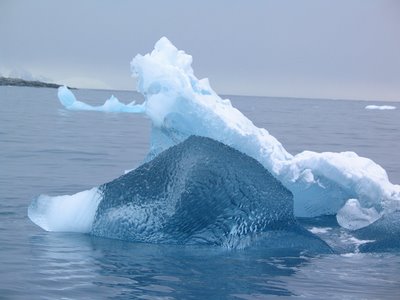
 Greetings to you all on
Greetings to you all on  Meet
Meet 
 Until September 11, 2001, November 22, 1963, probably held the dubious distinction of being the saddest day in American history. December 7, 1941, has its own infamy, and the assassination of another President on Good Friday 1865 holds greater historical significance in the sense that Abraham Lincoln's death all but doomed Reconstruction to failure. But the death of John F. Kennedy stands out as a watershed moment in its own right.
Until September 11, 2001, November 22, 1963, probably held the dubious distinction of being the saddest day in American history. December 7, 1941, has its own infamy, and the assassination of another President on Good Friday 1865 holds greater historical significance in the sense that Abraham Lincoln's death all but doomed Reconstruction to failure. But the death of John F. Kennedy stands out as a watershed moment in its own right. In the long history of the world, only a few generations have been granted the role of defending freedom in its hour of maximum danger. I do not shrink from this responsibility -- I welcome it. I do not believe that any of us would exchange places with any other people or any other generation. The energy, the faith, the devotion which we bring to this endeavor will light our country and all who serve it -- and the glow from that fire can truly light the world.
In the long history of the world, only a few generations have been granted the role of defending freedom in its hour of maximum danger. I do not shrink from this responsibility -- I welcome it. I do not believe that any of us would exchange places with any other people or any other generation. The energy, the faith, the devotion which we bring to this endeavor will light our country and all who serve it -- and the glow from that fire can truly light the world.

 The Conference of the Parties to the Kyoto Protocol has ended in Nairobi.
The Conference of the Parties to the Kyoto Protocol has ended in Nairobi. 


 The
The 
 This explains why some crepuscular animals spring to life under bright moonlight. The werewolf legend lies but a short imaginative step away.
This explains why some crepuscular animals spring to life under bright moonlight. The werewolf legend lies but a short imaginative step away.

 . . . but
. . . but 

